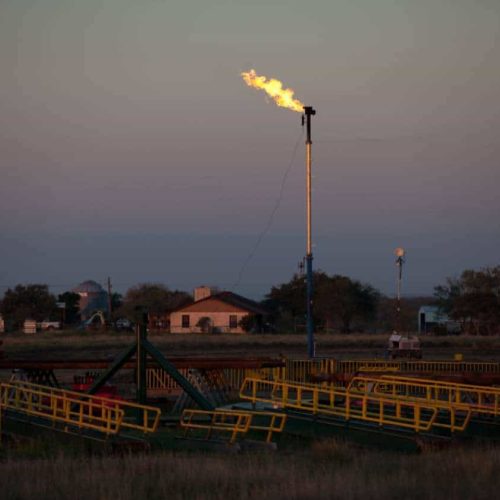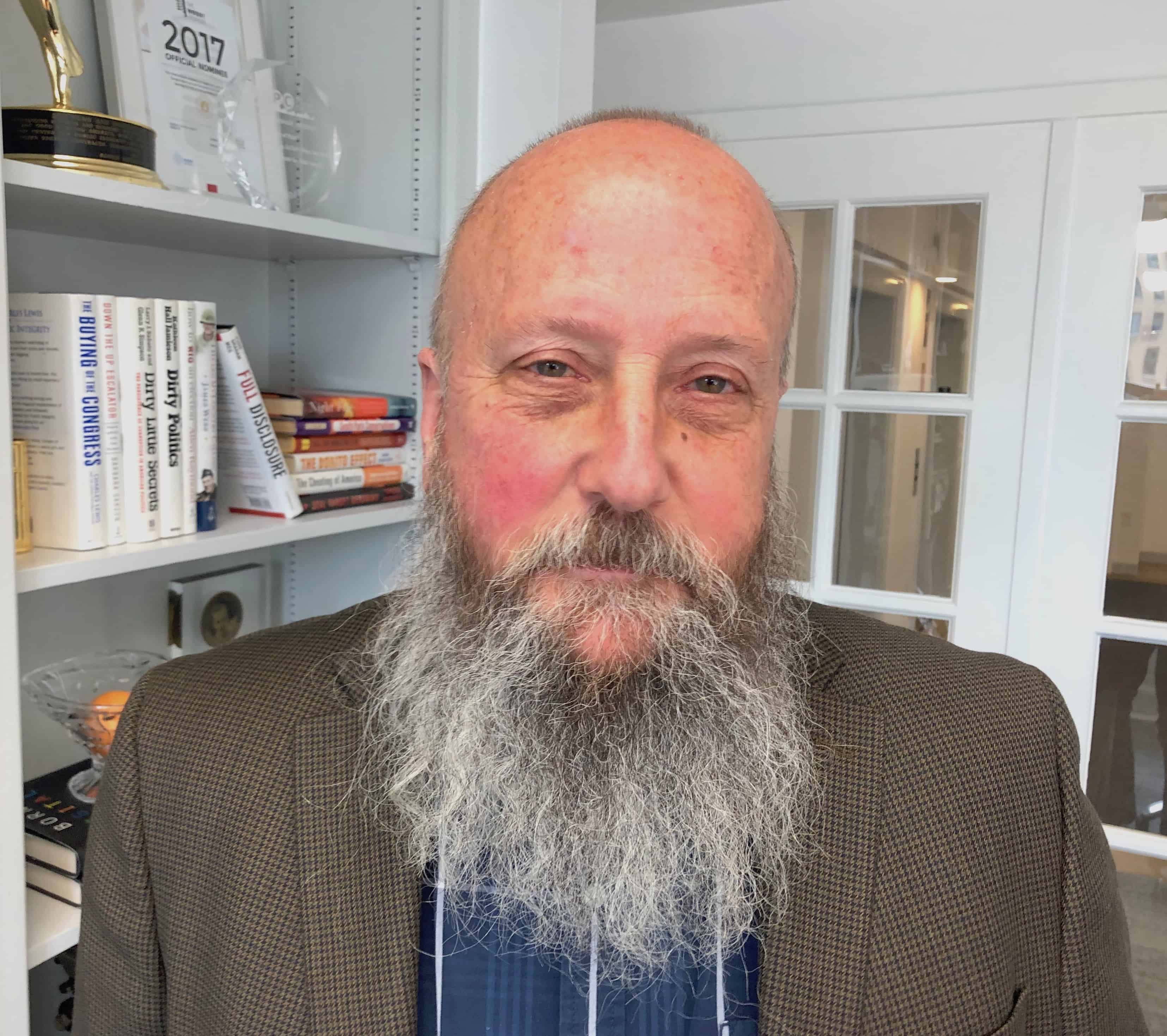Introduction
How does one of America’s biggest oil and gas booms go mostly unrecognized in the national media? Hard to say, but it has. A subject of solid local coverage, the Eagle Ford Shale play in South Texas has yet to become part of the national conversation on hydraulic fracturing — fracking — in contrast to, say, Pennsylvania’s Marcellus Shale or North Dakota’s Bakken.
This oddity, along with the sheer size of the play — 26 counties, 20,000 square miles — attracted us to the story. We focused on the air-quality impacts of drilling and related activities because chemical-laden air may prove to be an even bigger public health consequence than tainted water, which has been widely reported.
The partnership that produced “Big Oil, Bad Air: Fracking the Eagle Ford Shale of South Texas” was formed in the spring of 2013. Two nonprofit news organizations, the Center for Public Integrity and InsideClimate News, teamed up with The Weather Channel to explore the issue of air emissions and the consequences for the people of the Eagle Ford.
What we did to get the story
- Took eight trips to the Eagle Ford to interview sources, talk with people in their homes and take videos and photos.
- Filed 24 Texas Public Information Act requests with the Texas Commission on Environmental Quality (TCEQ). Using the state disclosure law, we sought records that would help us understand how the agency regulates the oil and gas industry’s emissions and how it does or doesn’t respond to residents’ complaints.
- Interviewed more than a dozen engineers and industry experts and studied government and industry publications so we could create an infographic, glossary and primer to explain how pollutants are released during oil and gas extraction. A few asked not to be identified because they didn’t want to be part of what they considered a controversial project.
- Interviewed more than 20 scientists about the health impacts of chemicals emitted during gas and oil development. Few have studied the health effects in the Eagle Ford, so we reached out to scientists knowledgeable about shale plays in other regions, as well as general experts in air monitoring, petroleum engineering, public health and toxicology. Due to the controversial nature of the topic, some scientists — including tenured professors — declined to be interviewed.
- Read 284 complaints filed with the TCEQ by Eagle Ford residents who said they had been affected by oil and gas drilling. We then tracked the agency’s follow-up to these complaints.
- Reviewed hundreds of financial and campaign contribution disclosure documents on file with the Texas Ethics Commission to determine whether legislators’ personal finances were linked to the industry.
How people tried to thwart us
- The agency responsible for regulating air emissions — the TCEQ — refused to make any of its commissioners, officials or investigators available for interviews. Instead, we had to submit questions via emails that were routed through agency spokespeople. It’s unclear if the spokespeople passed our questions along to the agency’s experts. We received answers to most of our emails, often in some detail. But some of our questions were ignored or answered with talking points on general topics. The TCEQ employees who dealt with our public records requests were helpful and responsive, however. They discussed the filing process over the phone and answered questions about our requests.
- When a reporter called TCEQ field inspectors at their homes — a commonly used reporting technique — TCEQ spokeswoman Andrea Morrow left the reporter a message saying, “Under no circumstances are you to call our people and harass them at home.” Morrow also blocked the reporter from approaching the agency’s chairman, Bryan Shaw, at a public meeting in Austin.
- The agency’s public records pricing system was puzzling. We were charged as little as 20 cents for one document but were asked for more than $10,000 to provide a batch of documents that had been given to another news agency years ago. We withdrew our request.
- The Texas Railroad Commission, which regulates drilling and all other aspects of the industry, made Commissioner David Porter available for a 10-minute phone interview. The Weather Channel later scheduled an on-camera interview with Porter, but when the producers arrived at the appointed time, they were told Porter was sick and would not be available for the next month. Like the TCEQ, the Railroad Commission spokespeople refused to discuss anything on the phone, including even technical questions about the mapping data we purchased from the agency. Nor would they make Porter or other top officials available for final, pre-publication phone interviews.
- Industry officials in Texas were as reluctant as regulators to meet face-to-face or go on camera. Most insisted that all queries be submitted in writing. No tours of Eagle Ford operations were allowed, despite several requests. No on-the-ground discussions of air pollution were facilitated. Hunt Oil was the exception. When we asked about a problem at one of its processing plants, the company set up a phone interview with an executive who answered our questions.
- Steve Everley, a spokesman for Washington D.C.-based Energy in Depth, which is affiliated with the Independent Petroleum Association of America, was the only industry representative who agreed to appear on camera. Omar Garcia, who heads the San Antonio-based communications arm of the 11 biggest Eagle Ford operators, answered questions over the phone and by email.
As our reporting deepened, even some Eagle Ford residents grew skittish. Mike and Myra Cerny, who live near Karnes City and are surrounded by oil and gas facilities, spoke at length with a reporter in June. But several months later they retired from public view and declined requests for photographs or an on-camera interview.
Read more in Environment
Environment
Is this U.S. coal giant funding violent union intimidation in Colombia?
Alabama-based Drummond Co. sued for alleged ties to group behind deaths, threats



Join the conversation
Show Comments